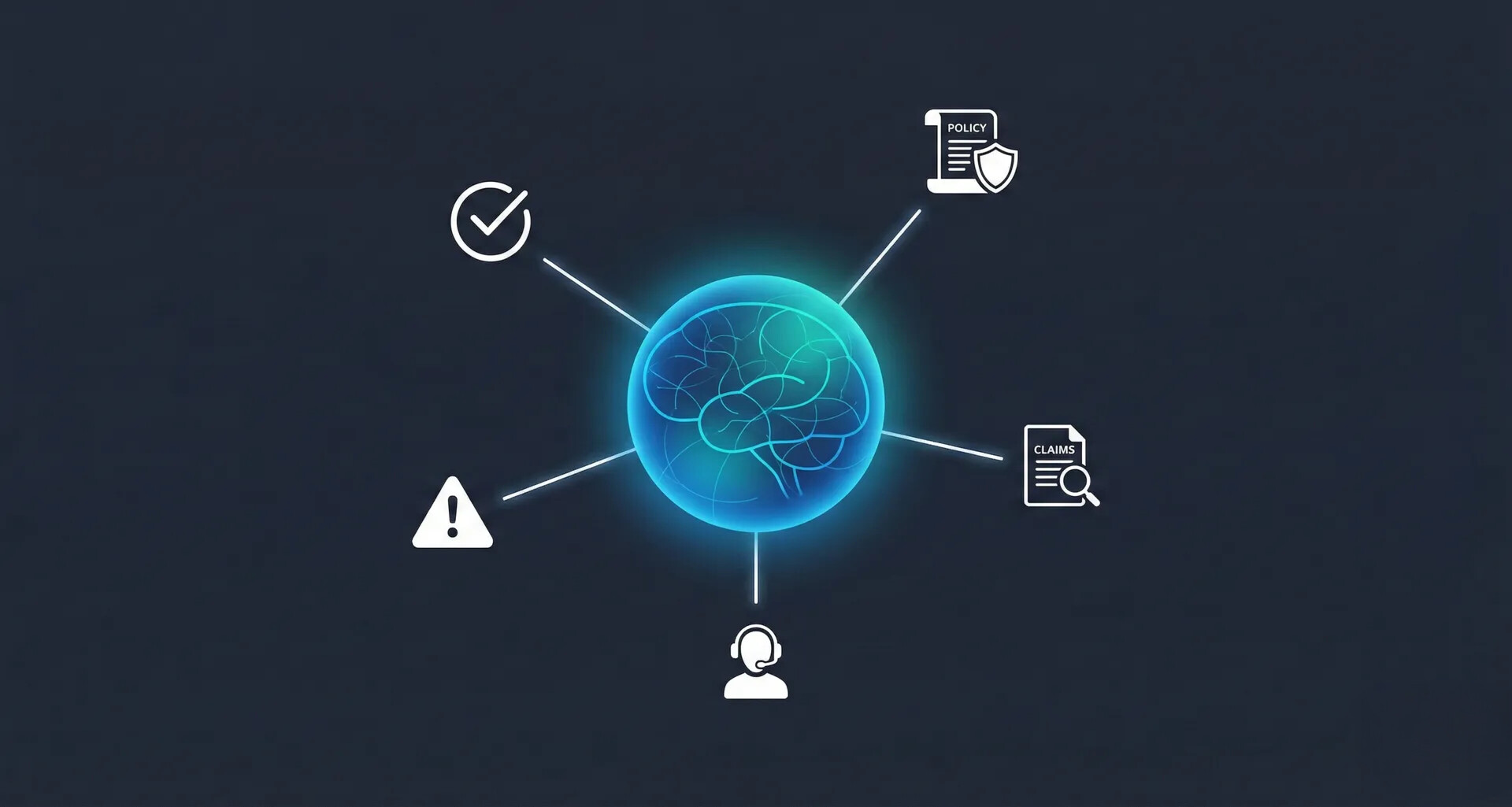Angular Development Services
Enhance your business with scalable, secure Angular web development solutions.

What is Angular?
Angular is a powerful open-source web application framework developed and maintained by Google. It enables developers to build dynamic, scalable, and efficient single-page applications (SPAs). With a component-based architecture, Angular simplifies both development and testing by offering robust tools and a modular structure.
Its flexibility and cross-platform capabilities make it a preferred choice for enterprises seeking to deliver high-performance web applications efficiently.

Our Angular development services
Custom Angular web development
We provide custom Angular development services tailored to your business needs. Our team uses Angular’s component-based architecture to create scalable, high-performance web applications, including complex enterprise web applications, ensuring an optimal user experience and efficient code management.Single-page applications (SPA) web development
As a leading Angular development company, we specialize in SPA web development to build fast, responsive single-page applications. With Angular, we create dynamic and engaging SPAs that eliminate page reloads, offering seamless user interactions and real-time updates.Server-side rendered (SSR) applications
Our Angular development services include building server-side rendered (SSR) applications that improve load times, SEO, and performance. SSR applications are ideal for businesses seeking optimized SPA web development that enhances search engine visibility and user experience. Hire our Angular developers to create scalable SSR solutions that boost your web app’s speed, accessibility, and engagement, driving better results for your business.Angular consulting and architecture design
Our Angular development solutions include expert consulting and architecture design to ensure your applications are built for scalability and maintainability. We provide strategic guidance and implement best practices to create robust Angular architectures that drive long-term success.Angular migration services
Our team handles seamless migrations to Angular from legacy systems or other frameworks. We minimize downtime and enhance your application’s performance by leveraging the latest Angular features, providing you with modern, future-proof solutions.Angular support and maintenance
We offer comprehensive Angular development services, including ongoing support and maintenance. Our team ensures your applications are secure, high-performing, and regularly updated with the latest Angular versions and optimizations for continuous, smooth operation.Angular integration services
Our Angular integration services enable you to connect your applications with various third-party systems, APIs, and databases. We ensure seamless interoperability between Angular and other platforms to enhance functionality and streamline operations.Progressive web app (PWA) development
We provide Angular development solutions for Progressive Web App (PWA) development. Using Angular’s powerful capabilities, we build PWAs that offer a native app-like experience with offline access, faster load times, and enhanced device performance.
The benefits of using Angular
Scalability
Understanding what Angular is and how it works is essential to appreciating its benefits. Angular’s modular architecture allows businesses to build highly scalable applications. In fact, 54% of enterprises use Angular for mission-critical applications due to its scalability and maintainability. Whether you want single-page application web development or complex enterprise-level solutions, Angular’s structure ensures easy management and future expansion.High performance
Angular applications deliver high performance, with features like Ahead-of-Time (AOT) compilation and Ivy rendering, which can reduce bundle sizes by up to 30%, leading to faster load times. These performance improvements can boost user engagement by 15-25%, making Angular development services ideal for businesses seeking optimized, responsive applications.Cross-platform development
Angular’s flexibility supports cross-platform development, including Progressive Web Apps (PWAs) and mobile apps. This cross-platform capability ensures a consistent user experience across devices, contributing to Angular’s widespread adoption by over 500,000 websites, including many Fortune 500 companies.Strong community and support
As one of the most widely used frameworks, Angular benefits from strong community support and long-term backing from Google. This ensures that Angular development services remain reliable, innovative, and future-proof, with a vast ecosystem of tools, libraries, and best practices available to developers.Improved maintainability
Angular's use of TypeScript enables static typing, reducing errors early in development. Its structured coding practices and component reusability can reduce development time by up to 30%, making Angular development highly efficient and easier to maintain, particularly for large-scale or complex enterprise applications.Seamless integrations
Angular integrates effortlessly with third-party APIs, databases, and services. Its dependency injection system can reduce code complexity by up to 40%, making it an excellent choice for enterprise-grade applications that need to handle complex data flows and multiple integrations.Enhanced security
Angular provides built-in features to guard against common web vulnerabilities such as cross-site scripting (XSS). Additionally, businesses using Angular development services have reported a 10-20% improvement in search engine rankings thanks to its SEO-friendly nature, further boosting online visibility and security.Development efficiency
Tools like the Angular CLI improve developer productivity by 20-30%, allowing automated project setup and code generation. The extensive Angular ecosystem, combined with reusable components, can reduce development costs by 15-25%, making it a highly efficient framework for both small and large-scale projects.
54% of enterprises use Angular for building mission-critical applications due to its scalability and maintainability




Our Angular development process
Our Angular development process follows a structured, client-focused approach. We don’t just build applications; we deliver scalable, efficient Angular development solutions that align with your business goals, enhancing user experience and ensuring a strong return on investment. As an experienced Angular development company, we focus on creating high-performing applications our comprehensive strategy ensures enhanced user experience, improved performance, and a strong return on investment.
Discovery and requirement analysis
Objective
Our discovery phase is designed to thoroughly understand your business objectives, industry-specific needs, and user expectations. We analyze trends, challenges, and opportunities to craft a tailored Angular development strategy.Outcome
This stage provides valuable insights into your business, enabling us to create an Angular development solution that aligns with both market demands and user behaviors.Benefit
By developing a customer-centric roadmap, we ensure that our Angular development services align precisely with your business goals, driving engagement and satisfaction from the outset.
Strategic planning and blueprinting
Objective
We develop a comprehensive and flexible strategy for delivering scalable Angular applications. This includes selecting the most suitable technologies, tools, and architectural patterns for your Angular development project’s unique requirements.Outcome
The result is a detailed project blueprint, clearly outlining goals, timelines, and resource allocation, ensuring a seamless Angular development process from start to finish.Benefit
This approach minimizes risks and optimizes resources, keeping your Angular development project on track and budget with a well-defined, actionable plan.
Design, prototyping, and development
Objective
We prioritize rapid prototyping, designing, and developing high-performance, user-centric Angular applications. We utilize modern design principles and cutting-edge Angular development technologies to meet your business needs.Outcome
The result is a robust, scalable Angular application that provides an intuitive and engaging user experience closely aligned with your business objectives.Benefit
Our iterative approach ensures faster time-to-market, continuous refinement, and a final product that maximizes user satisfaction and business impact.
Quality assurance and usability testing
Objective
We implement rigorous quality assurance and usability testing throughout the Angular development process to ensure your application’s reliability, security, and performance.Outcome
The outcome is a polished, secure Angular application that is thoroughly tested and ready for a smooth launch.Benefit
This comprehensive testing minimizes post-launch issues, enhances user trust, and ensures a flawless experience for end-users.
Deployment and continuous support
Objective
We guarantee a seamless deployment of your Angular application, followed by continuous support, maintenance, and optimizations to ensure your app evolves with technological advancements.Outcome
Your Angular application is smoothly deployed and continuously improved to remain efficient, relevant, and impactful over time.Benefit
Our proactive support ensures rapid issue resolution, aligns your Angular development solution with your evolving business needs, and drives long-term growth and success.
Top-tier enterprises trust our business-aligned Angular development process




Case studies
Automotive
Autoklass – Luxury Vehicle E-commerce using Angular
HyperSense collaborated withto revamp its fragmented online presence, leveraging Angular to build a unified platform for selling luxury vehicles and services. The Angular-powered website includes advanced search and filtering, real-time service scheduling, and an e-commerce module. This modern Angular development significantly enhanced user experience and improved Autoklass’ market reach, aligning with their premium brand.Chemical transport
Trusted Carrier – Chemical Transportation App Ecosystem
HyperSense partnered with Trusted Carrier to develop a robust app ecosystem for the chemical transportation industry using Angular. The platform improves data validation, streamlines communication between drivers and transport partners, and integrates with existing ERP systems. Angular’s modular framework allowed for scalable, responsive web applications tailored to the complex requirements of logistics, enhancing efficiency and security in this critical industry.
Insights into Angular development

Agentic AI in insurance: beyond the chatbot
Most insurance AI projects never escape pilot purgatory. Learn why chatbots hit their ceiling and the architecture patterns for production AI agent deployment.

The Hidden Costs of AI Agent Development: A Complete TCO Guide for 2026
Your AI agent budget is probably 40-60% too low. From infrastructure to pilot purgatory, here’s the complete TCO picture every decision-maker needs before signing a contract.

Why 88% of AI Agents Never Make It to Production (And How to Be the 12%)
The demos impress. The pilots look promising. Then nothing happens. Discover why most AI projects die in pilot purgatory and what the successful 12% do differently.
Stay up to date with the latest web development insights




The Angular frameworks and libraries that we’re using
NgRx
NgRx is a powerful state management library based on the Redux pattern for Angular applications. It helps us manage complex application states effectively, improving performance and simplifying debugging, which is essential for large-scale Angular development.Angular Material
We use Angular Material to implement Google's Material Design principles in our projects. This library provides a rich set of UI components that allow us to create responsive, visually appealing user interfaces, speeding up the design and development process in our Angular development services.RxJS
RxJS is integral to handling asynchronous events in Angular applications. By leveraging RxJS, we manage real-time data streams efficiently, which is crucial for delivering seamless user interactions in complex Angular development projects. Hire RxJS developers from the HyperSense team to implement advanced event handling, optimize data flow, and deliver dynamic, scalable web solutions. Our expertise in RxJS enables us to enhance the interactivity and performance of your Angular applications, making them more engaging and robust.Angular Universal
Angular Universal enables us to build server-side rendered (SSR) Angular applications, improving load times and SEO. This tool ensures that applications built by our Angular development company not only perform well but also achieve higher search engine rankings.PrimeNG
PrimeNG is a widely used UI component library for Angular that offers a comprehensive set of customizable components. We use PrimeNG to accelerate Angular development, ensuring that our applications are both functional and aesthetically polished.Nebular
Nebular is a customizable UI library for Angular with a modern design focus. It enables us to create flexible, visually distinctive applications perfect for projects requiring a unique look and feel in their Angular development solutions.Apollo Angular
Apollo Angular allows us to integrate GraphQL with Angular applications for optimized data fetching, caching, and real-time updates. This library is particularly useful for ensuring efficient communication between front-end Angular applications and back-end APIs.
Why choose HyperSense Software for Angular development
Proven software development company since 2003
Founded in 2003, HyperSense Software has over two decades of experience delivering high-quality software solutions to businesses worldwide. Our strong track record spans various industries, from e-commerce to logistics, demonstrating our ability to meet the evolving demands of modern businesses with cutting-edge Angular development services.US-based headquarters
Our headquarters in Chicago positions HyperSense as a reliable US-based Angular development company. With easy access to clients in North America and beyond, we combine the advantages of a local presence with a global reach, delivering exceptional Angular development services that align with your business needs.ISO-certified quality and security standards
HyperSense is ISO 9001:2015 and ISO/IEC 27001:2018 certified, ensuring that our Angular development solutions adhere to the highest quality and security standards. These certifications guarantee that your projects are managed precisely and that the latest industry-leading security measures protect your data.Cross-industry and business experience
Our team, composed of MBAs, CPAs, and MDs, blends deep business insights with technological expertise. This cross-industry knowledge allows us to offer Angular development services that meet technical requirements and align with strategic business goals, offering solutions in healthcare, automotive, logistics, and more.Global talent pool
We harness the power of a global, English-speaking talent pool to deliver top-tier Angular development services. This diverse team enables us to scale quickly and maintain flexibility while providing round-the-clock support, ensuring that your Angular development project is completed efficiently, regardless of location.
FAQs
What is Angular, and what are the key benefits of using this technology for web development?
Angular is a versatile, open-source framework maintained by Google that is used to create dynamic and interactive SPAs with ease. Leveraging Angular’s component-based architecture allows developers to build scalable web applications efficiently. Angular also offers several key advantages, such as real-time data binding, cross-platform development support, and improved performance through Ahead-of-Time (AOT) compilation and lazy loading, resulting in faster and more responsive applications.How is Angular different from other frameworks like React or Vue?
Angular is a full-fledged framework, providing a comprehensive set of tools and built-in features like routing, form handling, and HTTP services. It uses TypeScript for static typing, which makes code more maintainable. In contrast, React is a library focused mainly on the view layer and requires external libraries for state management and routing. Vue is also more lightweight, but, like React, it doesn’t offer a complete framework out of the box.What types of applications are best suited for Angular?
Angular is well-suited for building complex, large-scale enterprise applications, single-page applications (SPAs), and Progressive Web Apps (PWAs). Its powerful tools make it ideal for developing high-performance web applications that require dynamic content and real-time data handling.Can Angular be used for server-side rendering (SSR)?
Yes, Angular supports server-side rendering through Angular Universal. SSR improves page load times and enhances SEO by rendering pages on the server before delivering them to the browser. This is especially beneficial for applications that rely heavily on dynamic content.How does Angular handle state management in large applications?
Libraries like NgRx are commonly used to manage states in large-scale Angular applications. NgRx follows the Redux pattern, providing a structured way to handle global states across components, which helps maintain consistency and improve debugging capabilities in complex applications.Is Angular suitable for Progressive Web Apps (PWAs)?
Yes, Angular is highly compatible with building PWAs. It offers built-in support for service workers, which enables offline capabilities and improves app speed and reliability. Angular’s CLI makes adding PWA functionality to an existing project easy.What is the typical Angular development process?
A typical Angular development process involves several stages: discovery and requirement analysis, strategic planning and blueprinting, design and prototyping, development, quality assurance, and deployment. Following Agile methodologies, developers iterate through these stages to deliver a scalable, high-performance Angular application.What is the best way to integrate Angular with other systems and APIs?
Angular integrates well with various back-end services and third-party APIs using its built-in HTTP client. It also supports GraphQL through libraries like Apollo Angular for optimized data fetching. For more complex integrations, developers often rely on RxJS to handle asynchronous data streams effectively.How does Angular ensure the security of web applications?
Angular has several built-in security features, including protection against common vulnerabilities like Cross-Site Scripting (XSS) and Cross-Site Request Forgery (CSRF). It encourages using trusted values for HTML, URL sanitization, and server-side authentication measures.What are the most popular libraries used with Angular?
Some of the most popular libraries used in Angular development include NgRx for state management, Angular Material for UI components, RxJS for handling asynchronous events, and Angular Universal for server-side rendering. PrimeNG and Nebular are also commonly used UI component libraries to speed up development.
Contact us and get your project moving
Describe your needs to us and we'll work together to craft the perfect software solution. Tell us your timeframes, your targets or KPIs, and any critical challenges or difficulties. You're at the right place our team is eager to study and prioritize next steps together with you.Let's talk about your project





